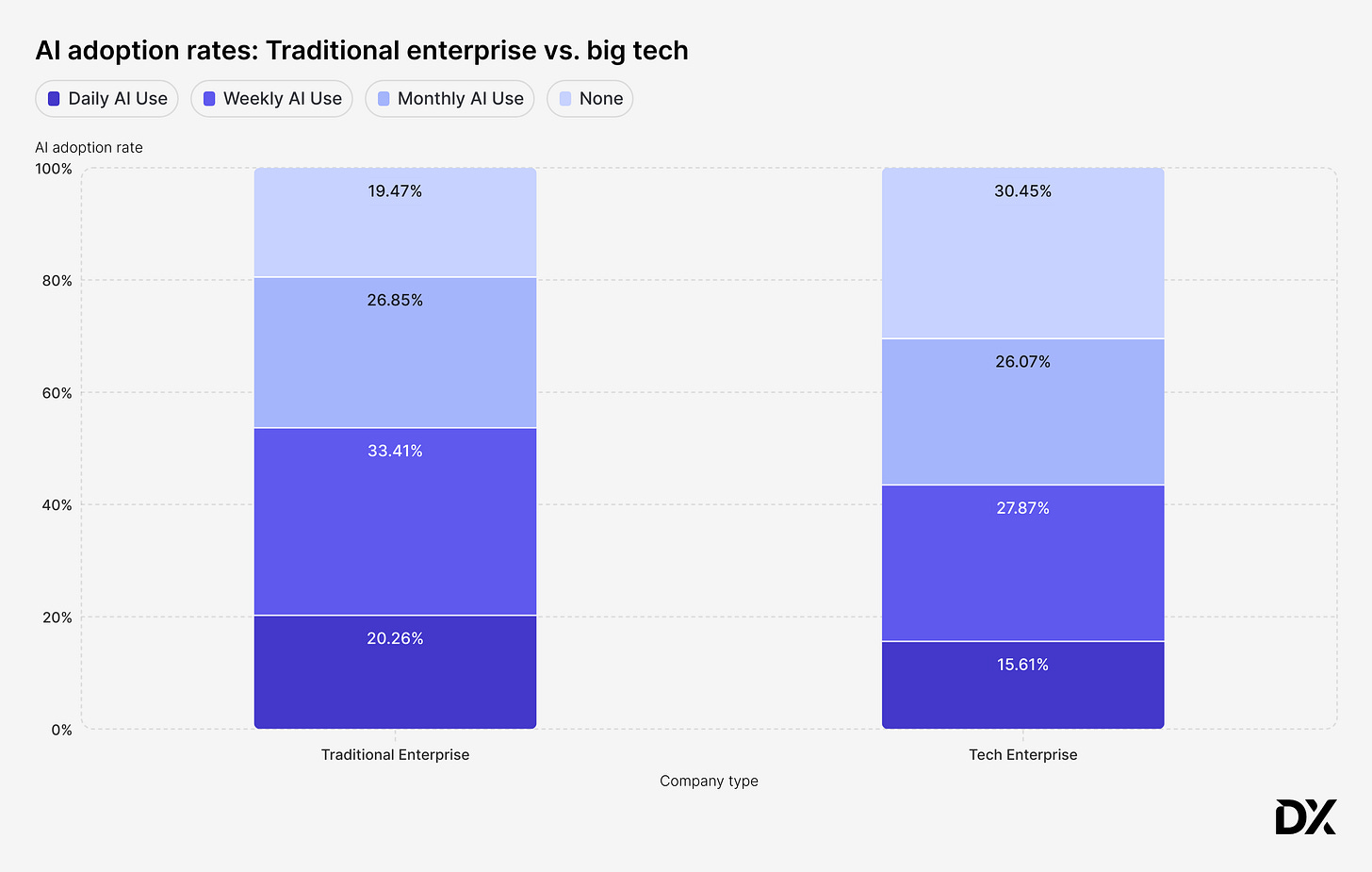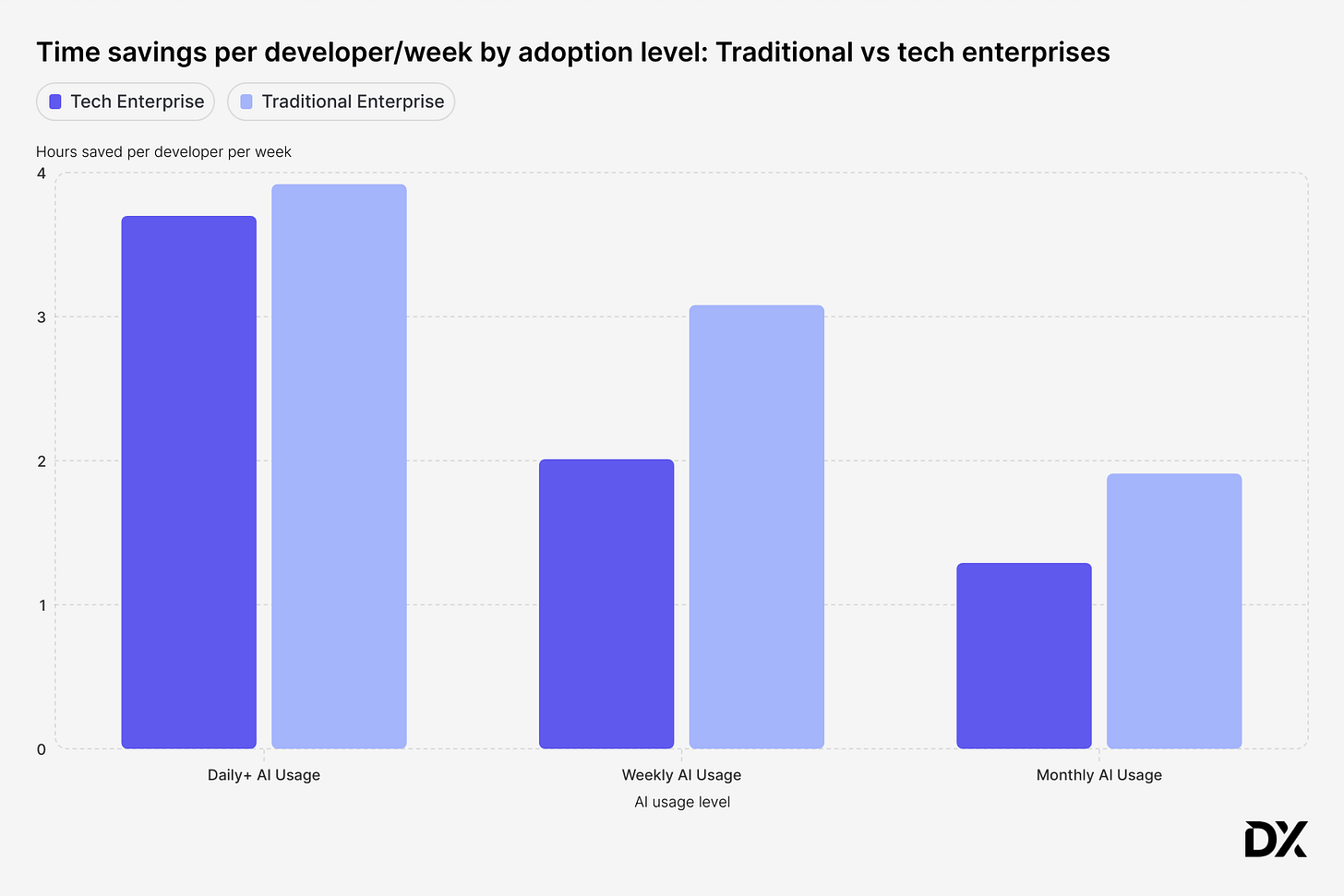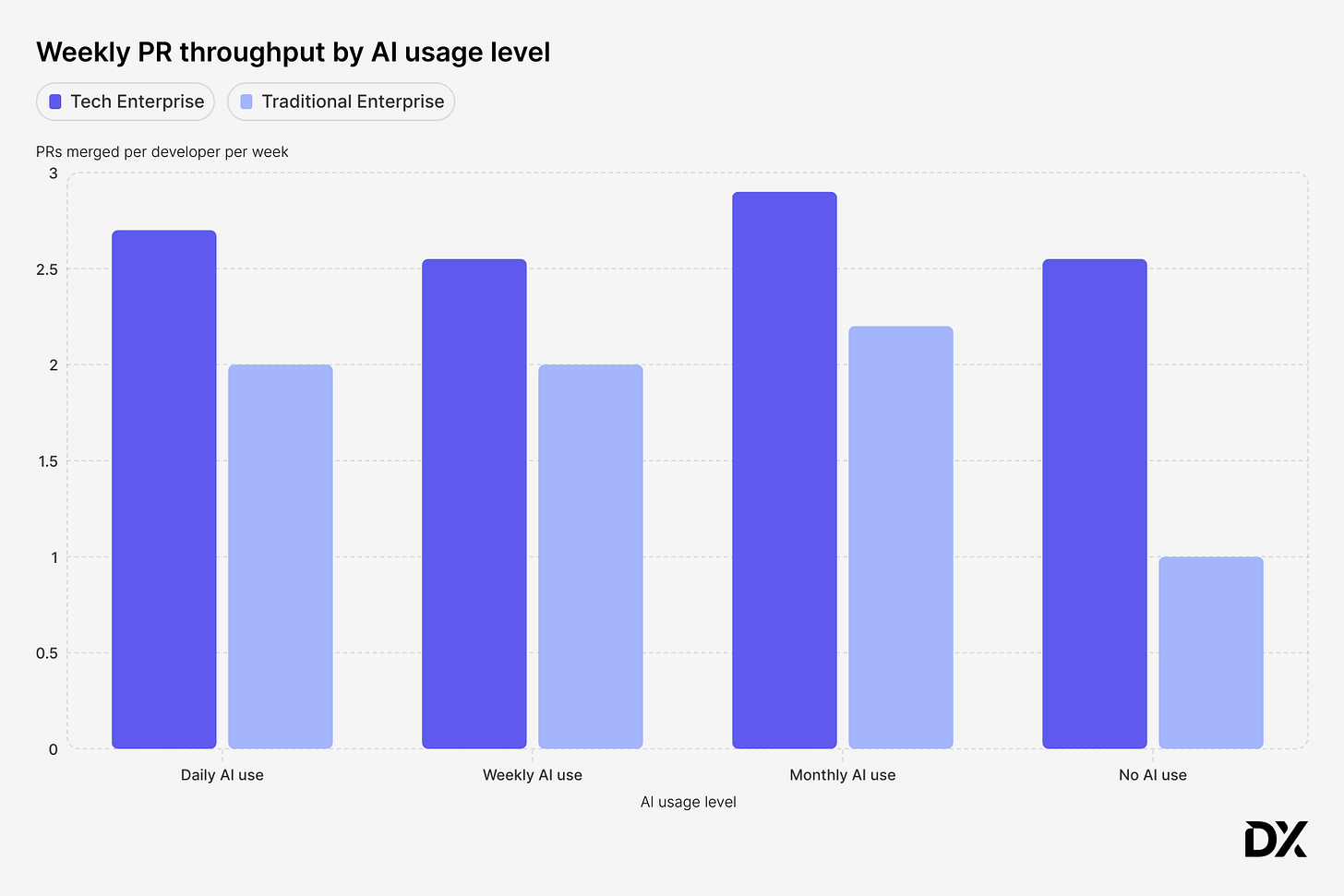Who leads in AI adoption: Tech or non-tech?
Data from more than 50,000 developers suggests that traditional enterprises are beating big tech on AI adoption and time savings.
Welcome to the latest issue of Engineering Enablement, a weekly newsletter sharing research and perspectives on developer productivity.
Right now a lot of headlines about AI are dominated by big tech companies—Meta, Google, Microsoft—and how much AI is accelerating their development. At DX, we have an inside look into the way all different types of companies are using AI. What’s missing from the headlines is that traditional enterprises are actually outpacing big tech in both AI adoption and AI-driven time savings.
Looking at a dataset from March-Sept 2025 with 56,733 enterprise developers, we see that traditional enterprises have higher overall adoption as well as a larger percentage of developers using AI tools on a daily and weekly basis.
Anecdotally, I started noticing this trend earlier in 2025. The more cautious or reserved an enterprise seemed, the more likely it was that more developers were using AI. Not by chance, either. Healthcare, banking, financial services, manufacturing—these are industries with a lot of regulations. And while these companies do move slower overall, this has led them to more structured, deliberate rollouts of AI tools.
Given that large, traditional enterprises have historically lagged behind smaller or less-regulated companies, their faster and stickier adoption of AI is surprising. It raised another question for us: do these high adoption rates actually translate into moving faster?
Devs at traditional enterprises save more time with AI
Right now, developers at traditional enterprises save more time each week with AI tools than those at big tech companies. The gap isn’t huge for daily users, but it grows for weekly and monthly users—who, on average, save about an extra hour per week compared to their peers in tech.
In other words, even occasional but consistent usage can generate meaningful gains. Structured rollout plans that drive broad adoption—even if developers don’t all become heavy users—are proving to be an effective strategy for increasing AI impact in traditional enterprises.
Tech companies are still shipping code faster, regardless of AI use
Despite this increased time savings, traditional enterprises are still moving slower when it comes to actually shipping code. This is consistent with pre-AI development benchmarks, where big tech companies outpace traditional enterprises when it comes to the number of PRs merged per week. The increased AI usage hasn’t closed this gap. But it’s clear that traditional enterprises are in a good position for speed and impact to continue to compound over time. I’m interested in looking at this same data six months from now to see where we’re headed.
Final thoughts
What does this mean? First, structured enablement is a huge differentiator and an important consideration to maximise ROI from AI tool investments. Access doesn’t mean adoption; we can’t just provide tool licenses to developers and hope their curiosity and grit will take care of the rest.
Further, adoption is not a question of who has the latest tools; it’s about enabling developers to use these tools in consistent and meaningful ways. Traditional enterprises may not have the reputation for speed or risk-taking that big tech does, but their strengths in structured enablement, change management, and deliberate rollout strategies are proving to be a real advantage. By leaning on these muscles, they’re getting sticky adoption and setting themselves up for significant developer productivity gains.
Who’s hiring right now
This week’s featured DevProd job openings. See more open roles here.
Intercom is hiring multiple roles | Dublin, London, San Francisco, Chicago
Multiverse is hiring multiple roles (London, hybrid):
Product Director - Platform
Senior Software Engineer - Developer Experience
Senior Engineering Manager - Platform
Uber: Lead Product Manager - Developer Platform | Sunnyvale, San Francisco, Seattle
Deliveroo: Staff Platform Product Manager | London, UK
RH: Director, Platform Engineering | Pleasanton, CA
GEICO: Senior Product Manager - Reliability | Palo Alto, CA; Washington, DC
That’s it for this week. Thanks for reading.






Isn't there a potential sampling bias in the data related to the type of "traditional" non-tech enterprises that are choosing to invest in DX, which is where this dataset comes from?
As you noted, traditional enterprises are often slower moving and more regulated. For this cohort to have gained approval for DX, they likely had to clear more hurdles and justify the investment as part of a structured enablement program, something that would naturally drive higher adoption and success rates.